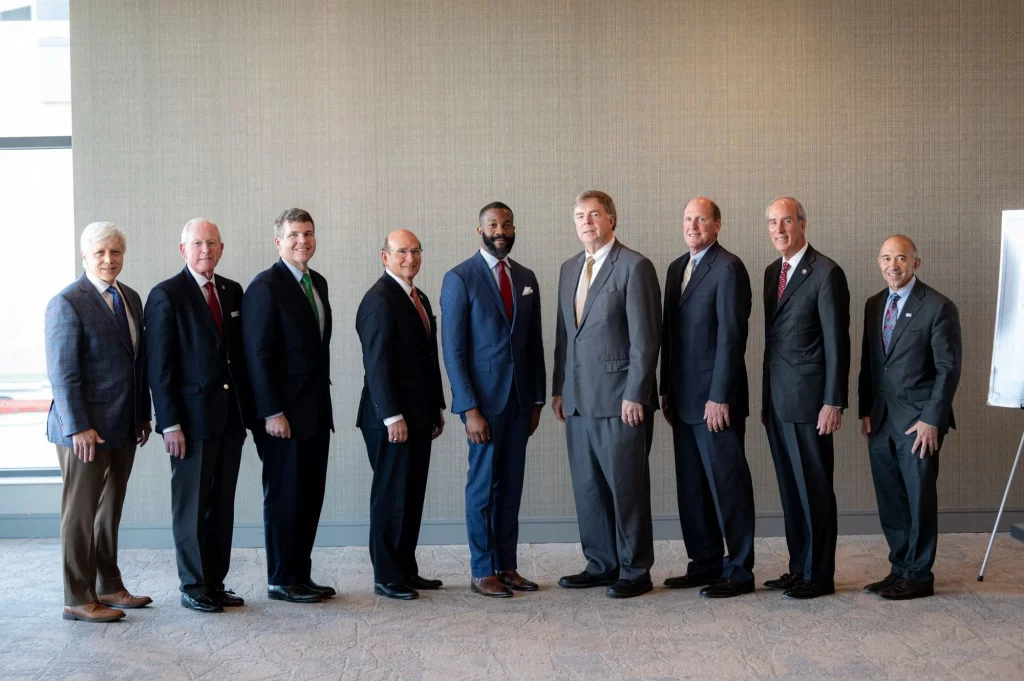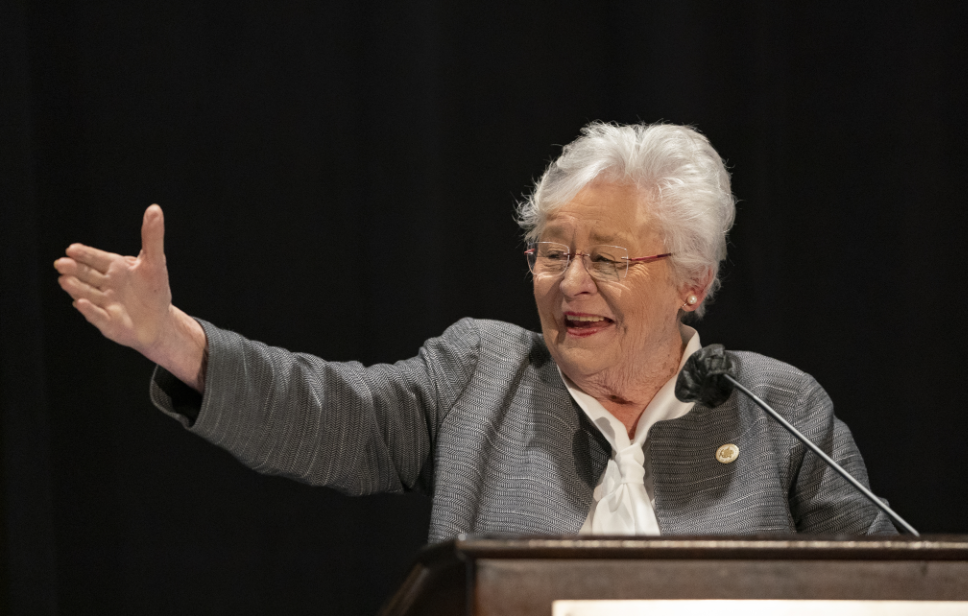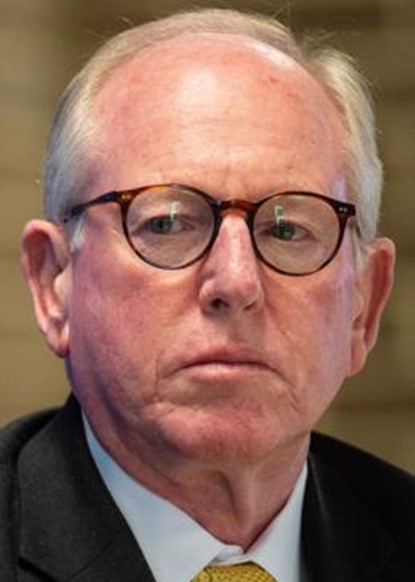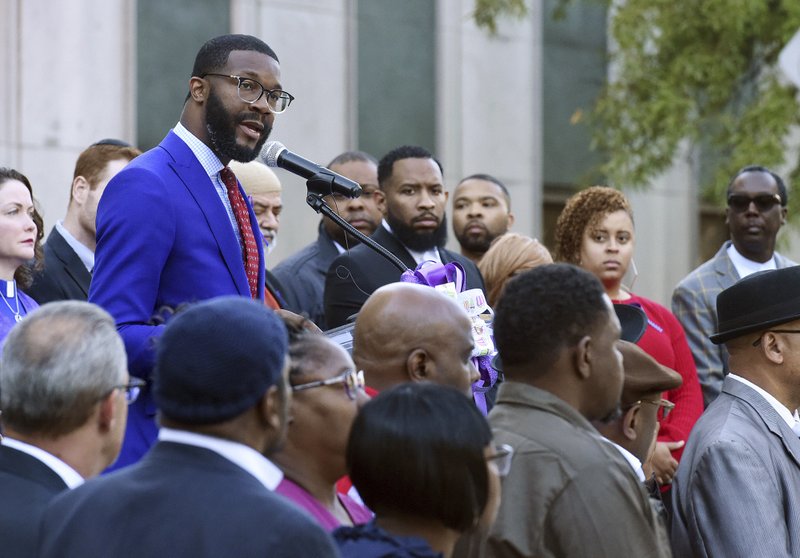Gov. Kay Ivey signs ‘The Game Plan’ legislation

On Thursday, Alabama Gov. Kay Ivey signed a package of four bills to extend and expand the economic incentive tools available to state financial planners. The Alabama Legislature passed the package of bills on Thursday morning, promising that the four “Game Plan” bills are the “plays” Alabama needed to call to have a bright future. “I am proud the Alabama Legislature has officially passed all four bills in The Game Plan package – my plan for our state’s continued economic success,” Ivey said in a statement. “I commend both the Senate and House for their incredible work on this timely legislation that will, no doubt, be transformative for our state and, more importantly, for our families. We are creating stability for our economy and are going to keep Alabama winning for many years to come.” “The Game Plan will give Alabama’s team the tools it needs to extend our winning record in economic development and help us unleash a new wave of growth and innovation across the state,” said Gov. Ivey. “From our rural areas to our big cities, this is going to benefit every corner of Alabama.” Senate President Pro Temp Greg Reed said that passage of the package was a victory for the state and its future. “The Game Plan is a multi-pronged approach to strengthen Alabama’s economy from all angles,” said Reed. “The four ‘plays’ are effective pieces of legislation that will help Alabama’s local communities thrive by attracting high-quality employers, creating jobs, and stimulating economic growth.” Speaker of the House Nathaniel Ledbetter said that the package would benefit Alabamians by better positioning the state to compete for the best jobs in the country. “Industries across the nation and globe are trying to come here because of our great employees, our low taxes, and our unbeatable quality of life,” said Ledbetter. “We want to make sure that, from a competition standpoint, we have the tools needed to bring companies here and keep them here.” Greg Canfield is the Secretary of the Alabama Department of Commerce. “The Game Plan will serve as our next-generation strategic economic development framework as we work to build a more dynamic economy for Alabama and its citizens,” said Secretary Canfield. “Neighboring states are aggressively escalating their economic development activities, and this will allow us to keep winning the projects that trigger lasting impacts.” The Alabama Big 10 Mayors praised the passage of the economic development Incentives bills. Passing the economic incentives legislation was item number one on the Alabama Big 10 Mayors’ 2023 legislative agenda. “These incentives programs are critically important to our cities and the entire state of Alabama,” the Alabama Big 10 Mayors said in a joint statement. “For our cities to be successful, we need to have the tools to attract new industry, businesses, and high-quality jobs. These bills give Alabama the ability to not just remain competitive, but also increase our ability to attract the world-class businesses and developments that improve the quality of life across our state.” “We thank Governor Kay Ivey, legislative leadership and their members, the Department of Commerce, and the many stakeholders who worked tirelessly to make this happen. We were proud to support this package of bills, and we look forward to seeing the impact that these incentives programs will have on each of Alabama’s ten largest cities.” The Mayors representing Alabama’s ten biggest cities work together to address the state’s most important issues and make Alabama a safer, better place for all its residents to live. The Alabama Big 10 Mayors include Auburn Mayor Ron Anders, Birmingham Mayor Randall Woodfin, Decatur Mayor Tab Bowling, Dothan Mayor Mark Saliba, Hoover Mayor Frank Brocato, Huntsville Mayor Tommy Battle, Madison Mayor Paul Finley, Mobile Mayor Sandy Stimpson, Montgomery Mayor Steven Reed, and Tuscaloosa Mayor Walt Maddox. The Game Plan includes four bills — or “plays” — focusing on economic development issues such as incentives, site development, small business support, and transparency. Play 1: The Enhancing Alabama’s Economic Progress Act renews the Alabama Jobs Act and the Growing Alabama program and extends their sunset dates to 2028 while adding strategic enhancements to increase their effectiveness. The Jobs Act is the state’s primary incentives platform, while Growing Alabama primarily speeds development of shovel-ready sites. Play 2: The Site Evaluation and Economic Development Strategy Act (SEEDS) will allow the State Industrial Development Authority to accelerate the development of industry-ready sites at a time when available sites are scarce, and other states are expanding their site programs. Play 3: The Innovation and Small Business Act aims to supercharge growth in Alabama’s innovation economy and support underrepresented businesses and enterprises in rural areas, transforming the state into a hub for technology and innovation. Play 4: The Enhancing Transparency Act will amend the Jobs Act to require the Alabama Department of Commerce to publish certain incentivized project information on its website. Transparency around important information related to companies receiving incentives will serve a valid public service and increase confidence in the process. Critics of the idea of economic incentives to lure industry and projects argue that it is corporate welfare and picking winners and losers, but there were no critics in the Alabama Legislature as the plan sailed through both Houses. To connect with the author of this story or to comment, email brandonmreporter@gmail.com.
Big Ten mayors host annual breakfast

On Wednesday, the Alabama Big Ten Mayors hosted legislative leaders at a breakfast on the Sixth Floor of RSA Plaza. The mayors thanked the legislators for their service and asked them to support their 2023 legislative agenda. Montgomery Mayor Steven Reed said, “There are a lot of great things happening in this city and across Alabama.” “We had a record year in economic development in the city,” Reed said. “It could not have happened without great help from the state of Alabama and our elected representation.” Reed said that the new $90 million waterpark would be an “economic lynchpin” for the city. “Gen Z picks the place and then picks the job,” Reed said. “That is a little bit different from what I was used to. We found the job and then went to the city where it was.” Reed said the water park would feature whitewater rafting next to a walking trail on the Alabama River and Maxwell Air Force Base. “It will definitely be a destination,” Reed stated. Mobile Mayor Sandy Stimpson is the Chairman of the Big Ten Mayors. “This started in 2014 as the big 5,” Stimpson said. “We started meeting on a quarterly basis. We found out that we had the same problems.” “That morphed into the Big 10 Mayors in 2019,” Stimpson. “Rebuild Alabama was our first focus. Rebuild Alabama has been great for the state.” Stimpson said that the mayors next got involved in Anaiah’s Law. “There was a repeat offender who had already shot a couple of people,” Stimpson said. “We asked the judge: Don’t let him out. The judge said: I have to. If you don’t like it, change the constitution.” The Mayors then got behind Anaiah’s law, which was sponsored by State Rep. Chip Brown. That amendment to the Alabama Constitution passed the Legislature and was ratified by the voters in the 2020 election. Tuscaloosa Mayor Walt Maddox said that the Mayors are urging the Legislature to pass the Simplified Sellers Use Tax. “Small business is the heart of our cities,” Maddox said. “We know it is not easy, but these are the people borrowing the money and taking the risk to build our communities, and they are the heart of our downtowns.” Lieutenant Governor Will Ainsworth said, “The big ten mayors play a big role in our state. Thank you for your support of our incentives package.” Senate President Pro Tempore Greg Reed said, “We will be looking at a four bill incentives package,” “We have had great success in Alabama with incentives,” Reed said. “We have created tens of thousands of jobs.” Speaker of the House Nathaniel Ledbetter said, “Our state is growing at a pace that I have not seen in my lifetime.” Ledbetter credited the incentives package for contributing to this growth. “The incentives have led to $40 billion in investment in the state and created 60,000 jobs,” Ledbetter said. “Rebuild Alabama has changed Alabama’s economy. All over the state, you see (road construction) barrels wherever you go. It used to not be that way.” “Ports are hugely important,” Ledbetter said. “We are expanding our port and building a new one in Montgomery.” Stimpson said, “75% of the people in Alabama live in the state’s metropolitan areas, and most of the economic growth occurs in the metropolitan areas.” The Alabama Big 10 Mayors include Auburn Mayor Ron Anders, Birmingham Mayor Randall Woodfin, Decatur Mayor Tab Bowling, Dothan Mayor Mark Saliba, Hoover Mayor Frank Brocato, Huntsville Mayor Tommy Battle, Madison Mayor Paul Finley, Mobile Mayor Sandy Stimpson, Montgomery Mayor Steven Reed, and Tuscaloosa Mayor Walt Maddox. Wednesday will be day 8 of the 2023 Alabama Regular Legislative Session. The Alabama Constitution limits the regular session to no more than thirty legislative days during a regular session. To connect with the author of this story or to comment, email brandonmreporter@gmail.com.
Alabama Big 10 Mayors announce their 2023 Legislative agenda

On Friday, the Alabama Big 10 Mayors released their legislative agenda for the 2023 Alabama Regular Legislative session. “Policy decisions made in Montgomery have a direct impact on our cities,” the ten mayors said in a joint statement. “And with nearly three out of four Alabamians living either in or around our state’s ten biggest cities, legislation that creates jobs and improves public safety in our communities benefits the vast majority of Alabamians. That’s why we have joined together to collectively advocate for important, common-sense legislation that will make our state a better place to live, work and raise a family. We look forward to working with our state’s dedicated elected lawmakers to make Alabama a safer, more prosperous state.” The Alabama Big 10 Mayors include Auburn Mayor Ron Anders, Birmingham Mayor Randall Woodfin, Decatur Mayor Tab Bowling, Dothan Mayor Mark Saliba, Hoover Mayor Frank Brocato, Huntsville Mayor Tommy Battle, Madison Mayor Paul Finley, Mobile Mayor Sandy Stimpson, Montgomery Mayor Steven Reed, and Tuscaloosa Mayor Walt Maddox. While 75% of the state’s population lives in the state’s largest metropolitan areas, just 25.1% of Alabamians actually live in the city limits of the ten largest Alabama cities. They range in size from Huntsville at 215,006 down to 56.933 for Madison in the 2020 Census. The mayors listed their key legislative priorities for the Alabama Big 10 Mayors for the 2023 legislative session. These policies, if enacted, will make Alabama a safer, more prosperous state. The Alabama Big 10 Mayors support the reauthorization and accompanying expansion of the Alabama Jobs Act and the Growing Alabama Act. The Mayors claim that the incentive programs established by these bills are critical to keeping Alabama’s economy globally competitive as we work to attract new businesses and new jobs to our communities. The Alabama Big 10 Mayors support efforts to make online sales tax distribution data from the State available publicly. If Alabamians are required to pay taxes on items purchased online, they deserve the right to know where their tax dollars are going. The Alabama Big 10 Mayors support legislation that would make it easier for local governments and land bank authorities to seize vacant, abandoned, and tax-delinquent private properties from landowners and address them in a way that would allow those previously unusable properties to contribute to and improve communities in Alabama cities. The Alabama Big 10 Mayors supports legislation enabling more expedient prosecution of unlicensed persons found to have any “trigger activator“ device, such as a “Glock switch.” These devices are federally illegal and not authorized by gun manufacturers. They effectively turn a semi-automatic firearm into a fully automatic firearm. These devices increase the number of rounds that a handgun can fire per second and decreases the amount of control that the shooter has over the firearm, increasing risks to bystanders and law enforcement. A state law would allow offenders to be prosecuted for having the unapproved device in the state and federal courts. The Alabama Big 10 Mayors support legislation that prohibits and provides criminal penalties for “exhibition driving“ – when a driver purposefully drives intentionally to create unnecessary engine noise, tire skid, burnouts, and other dangerous and dangerous and damaging driving techniques. This is a growing problem across Alabama cities that creates a public safety hazard for pedestrians and other drivers while draining limited law enforcement resources. To connect with the author of this story or to comment, email brandonmreporter@gmail.com.
Nucor Corp. plans $125 million facility, creating 200 jobs in Decatur

Governor Kay Ivey on Wednesday announced that Nucor Corp. plans to invest approximately $125 million to open an advanced manufacturing facility in Decatur. There, a new business unit – Nucor Towers & Structures, will produce transmission towers. “Alabama offers world-class companies like Nucor all the advantages they need to find success, including a skilled workforce, a pro-business environment, and a solid support system,” said Gov. Ivey. “This investment project is a win for Nucor, Decatur, and all of Alabama.” The new plant will create 200 full-time jobs. The positions will have an average annual compensation of $75,000 and will be filled over a four-year period. Leon Topalian is the Chair, President and CEO of Nucor Corp. “We are very excited to be building this new tower production plant in Alabama, where Nucor has a long history and presence throughout the state,” said Topalin. “As America’s most diverse industrial manufacturer of steel products, we will be able to efficiently supply this new plant, helping to ensure that our nation’s critical energy and digital infrastructure is built with the cleanest, most sustainable steel in the world.” Charlotte, North Carolina-based Nucor already has a strong presence in Alabama. The company established the new business unit after it acquired both Summit Utility Structures LLC and Sovereign Steel Manufacturing LLC in 2022. The new division produces metal poles and other steel structures for utility infrastructure and highway signage. Nucor’s existing facilities in Alabama produce steel, tubular products, joists, and decking, as well as metal buildings. The company has locations in Birmingham, Tuscaloosa, Fort Payne, Eufaula, and Decatur. Economic developer Dr. Nicole Jones told Alabama Today, “Nucor and the steel industry have a long history and presence in Alabama. Nucor’s product lines serve an array of commercial customers in the fields of agriculture, automotive, construction, energy transmission, heavy equipment, infrastructure, transportation, oil & gas, and more. Nucor’s latest expansion, Nucor Towers & Structures, will be an advanced manufacturing facility that makes transmission towers. The company’s capital investment in Decatur will include land improvements, construction of a new building, and manufacturing equipment. The new plant will be located adjacent to the Nucor Steel Decatur sheet steel mill. Greg Canfield is the Secretary of the Alabama Department of Commerce. “Nucor Corp. has a long-standing manufacturing presence in Alabama, and it’s great to see the new Nucor Towers & Structures business unit commence operations in Decatur,” said Sec. Canfield. “Over the years, we’ve developed a strong partnership with Nucor, and I look forward to seeing our relationship expand with this new venture.” The new plant in Alabama will be highly automated. The factory will utilize efficient straight-line production and will also include advanced hot-dip galvanizing operations. Laurent De Mey is the General Manager of Nucor Towers & Structures. “We appreciate the support we have received from the state and local officials in Alabama, including Governor Ivey, the Alabama Department of Commerce, the State of Alabama State Industrial Development Authority, Morgan County Economic Development Association, Morgan County Economic Development Cooperative District, Morgan County, Decatur Industrial Development Board, City of Decatur, Decatur-Morgan County Chamber of Commerce, Hartselle Chamber of Commerce, and the Tennessee Valley Authority,” said De Mey. “We are excited to launch our expansion of this new Nucor business in the State of Alabama.” “The direct and indirect jobs resulting from Nucor’s expansion will provide significant economic benefits for Decatur, Morgan County, and our entire state,” Jones said. State Senator Arthur Orr serves as chairman of the Morgan County Economic Development Association. “It is a true vote of confidence in our community when an existing business decides to further expand its operations here. Our people are our strength in Morgan County,” said Sen. Orr. “We are grateful for the excellent job they do for employers like Nucor and others across the area.” Ray Long is the chairman of the Morgan County Commission. “This is a great company with a great reputation for working with us to make Morgan County a better place to live,” said Chairman Long. “We look forward to working with them to make sure this venture is successful,” said Long. “We are also thankful for the approximately $125 million investment and the 200 jobs created with a compensation of around $75,000,” said Decatur Mayor Tab Bowling. “Our local economic development office, along with its numerous partners, continue to work hard to bring new industries and quality jobs to Decatur. This is a prime example of that work.” “Metals and advanced materials are one of our state’s targeted business sectors,” Jones explained. “Alabama Department of Commerce data from 2021 shows primary metal manufacturing exports valued at approximately $1.3 billion, and fabricated metal manufacturing exports valued at $453 million.” To connect with the author of this story or to comment, email brandonmreporter@gmail.com.
Steve Flowers: Alabama’s big 10 mayors are influential

Students of Alabama political history will rightly remember the 2022 midterm election. This election saw the majority of Alabama voters cast their ballots for Katie Britt, who will be the first woman elected to represent Alabama in the U.S. Senate. Governor Kay Ivey easily coasted to victory to gain her second full term in office, continuing her reign as the first Republican woman to serve as Governor. Republicans from the top of the ballot on down cemented their control of the state government by huge margins. On top of all this, I suspect that students of Alabama politics will also note 2022 as the year that a new political force emerged on the scene. For the first time this cycle, the Alabama Big 10 Mayors – as the name suggests, the mayors of the state’s ten biggest cities – flexed their political muscle and put their support behind the Aniah’s Law constitutional amendment, which received a staggering 1,018,004 “yes” votes, more than any other item on the ballot. For those who are not aware of this emerging new group, the mayors of Alabama’s ten biggest cities joined together to use their collective influence to advocate for public policy positions that they believe will make Alabama a safer, more prosperous state. If you happen to live in the metro areas of Birmingham, Huntsville, Madison, Mobile, Montgomery, Auburn, Tuscaloosa, Dothan, Hoover, or Decatur – you live in the orbit of this group’s sphere of influence. While these mayors have been meeting regularly for several years to discuss issues like crime, infrastructure, and economic development, this election cycle marks the first time they have weighed in on electoral politics. Through a focus on local media, these mayors were able to ensure that this popular proposal stayed top-of-mind for Alabama voters. In fact, the late push against the referendum from both the far left and far right of the political spectrum was likely a reaction to the media coverage and public support that these mayors generated. Their advantage is not just in the media. They are a bipartisan group with credibility on both the right and left sides of the aisle. They are popular, and many are serving their third or even fourth terms. They are geographically diverse, with representation from Huntsville to Mobile to the Wiregrass. Finally, they represent a whole lot of Alabamians – approximately 75% percent of the state lives in one of their metro areas. As our state works to attract new residents and grapple with brain drain, policymakers would do well to listen to what these mayors have to say. It is clear that the future of Alabama depends on successful cities that can attract and retain the types of people who work in our booming space, medical research, and advanced manufacturing industries. Ignoring our cities is a recipe for decreasing competitiveness across the state. If you think we are a rural, small-town state, you are mistaken. In case you missed my earlier statement, a clear three-fourths of all Alabamians now live in one of our ten major cities in the state. Most of the real governing in the state is done by mayors. Being mayor of a city is where the rubber meets the road. It is the governmental constant where everyday problems are resolved. The gentlemen who comprise the group of the Big 10 mayors are hardworking, true public servants. They are doing their job day-in-and-day-out without fanfare and without an eye toward moving up statewide or to Washington. They love their cities and are governing them well. Representing the largest cities in Alabama, the Big 10 mayors include Auburn Mayor Ron Anders, Birmingham Mayor Randall Woodfin, Decatur Mayor Tab Bowling, Dothan Mayor Mark Saliba, Hoover Mayor Frank Brocato, Huntsville Mayor Tommy Battle, Madison Mayor Paul Finley, Mobile Mayor Sandy Stimpson, Montgomery Mayor Steven Reed, and Tuscaloosa Mayor Walt Maddox. It is interesting and noteworthy that two of the Big 10 cities are suburban enclaves of two of our large metropolitan areas. Hoover is one of the largest cities in the state and is an outgrowth of Birmingham. If census trends continue the next ten years the same as the last, Hoover may be a larger city than Birmingham. It more than likely will be in 20 years. However, if those same trends stay in place, Huntsville will continue to be Alabama’s largest city. One of the most revealing things to note is that Madison, a suburb of Huntsville, is one of the ten largest cities in Alabama. The Big 10 Mayors should have a big story for a long time to come. See you next week. Steve Flowers is Alabama’s leading political columnist. His weekly column appears in over 60 Alabama newspapers. He served 16 years in the state legislature. Steve may be reached at: www.steveflowers.us.
Mayor Tab Bowling offers Airbnb despite city rental ban

An Alabama mayor said he will have to “man up” and deal with the blowback after a newspaper reported he was operating an Airbnb at his home despite a city ordinance that prohibits such short-term rentals. Decatur Mayor Tab Bowling told the Decatur Daily he might need to stop offering a small guesthouse for rent following its reporting. “Obviously, this will end up being embarrassing,” Bowling told the newspaper Tuesday. “… It’s not something I look forward to dealing with in the media. I’m not looking forward to that. But I’m looking forward to the ordinance being changed so that we can do this.” A Decatur ordinance prohibits Airbnbs and other short-term rentals except in certain parts of the city, but Bowling has been offering a small house on his property for rent for as little as $70 a night since at least August, the newspaper reported. In September, after Bowling began renting out the guesthouse and as the council was discussing the possibility of relaxing the ban on short-term rentals, Bowling told the newspaper that many other people were renting houses for short stays despite the ban. “It’s definitely something we need to address for our city because it’s being done. It’s almost like bootlegging before the city was wet,” Bowling said. Bowling said he may need to stop renting the guesthouse until the issue is resolved. “This (publicity) is probably not going to be met with a lot of favor. I’ll just have to man up and deal with it,” said Bowling, who was first elected in 2016 and won a second term two years ago. City leaders were critical of Bowling’s actions. “That was just dumb,” said council member Carlton McMasters. “We’re elected, and we take an oath to uphold our laws and ordinances, and that wasn’t done. We try to be transparent in decision-making, and I hope this doesn’t cause distrust.” Republished with the permission of The Associated Press.
Alabama Big 10 Mayors say state will be safer thanks to Aniah’s Law

On Tuesday, Alabama voters went to the polls and overwhelmingly voted to ratify Amendment One -Aniah’s Law. The Big 10 Mayors had endorsed ratification of the bill to allow judges to deny mail to dangerous felons. After Tuesday’s victory, the Mayors said they will continue to collectively advocate for policy goals that make the state a better place for all Alabamians “We were proud to support this constitutional amendment and to have fought for its approval by Alabama voters,” the Mayors said. “This is a big win for public safety in Alabama and will honor Aniah’s memory for generations to come.” They thanked voters for making Alabama safer by showing up at the polls and voting for Aniah’s Law. “As mayors of Alabama’s ten largest cities, we understand the great responsibility we have to promote public safety in our communities,” the Mayors said. Early on, we identified Aniah’s Law as an issue in which we could use our collective influence to advocate for and make Alabamians safer. This amendment will give Alabama judges and District Attorneys the tools they need to keep violent criminals off the streets.” Under current Alabama law, judges have limited authority to deny bail to violent offenders unless the suspect is charged with a capital offense or poses a flight risk. Proponents say that means that dangerous criminals are often released back onto the streets, even when it is likely they will commit more violent crimes as soon as they make bail. Aniah Blanchard was a Southern Union student who was kidnapped off of the streets of Auburn at a gas station by a known violent kidnapper who was out on bond. She was brutalized, raped, and murdered by her attacker. Her parents were instrumental in Aniah’s law being passed by the Alabama Legislature. Now, after a majority of Alabama voters voted to pass Aniah’s Law, judges will be able to deny bail to dangerous offenders who are likely to re-offend when charged with serious felonies like murder, kidnapping, rape, sexual torture, domestic violence, human trafficking, burglary, arson, robbery, terrorism, or aggravated child abuse. “Far too often, these offenders – who are often charged with crimes such as murder, rape, and kidnapping – are released to re-commit more heinous crimes while they await trial. That flawed system led to the kidnapping and murder of 19-year-old Aniah Blanchard in October of 2019. Simply put, Aniah’s accused killer should have been in jail, and Aniah should still be alive. We were honored to help get this constitutional amendment across the finish line to protect Alabamians from suffering the same tragedy that befell Aniah and her family. We were proud to support this constitutional amendment and to have fought for its approval by Alabama voters. This is a big win for public safety in Alabama and will honor Aniah’s memory for generations to come.” Amendment one was also endorsed by Gov. Kay Ivey, Attorney General Steve Marshall, Secretary of State John Merrill, and unanimous votes by both Houses of the Alabama Legislature, where it was sponsored by State Rep. Chip Brown. “We will continue to collectively advocate for policy goals that make our state a better place for all Alabamians,” said the Mayors. The Alabama Big 10 Mayors include Auburn Mayor Ron Anders, Birmingham Mayor Randall Woodfin, Decatur Mayor Tab Bowling, Dothan Mayor Mark Saliba, Hoover Mayor Frank Brocato, Huntsville Mayor Tommy Battle, Madison Mayor Paul Finley, Mobile Mayor Sandy Stimpson, Montgomery Mayor Steven Reed, and Tuscaloosa Mayor Walt Maddox. All ten statewide constitutional amendments and the 2022 recompiled state constitution were ratified by voters on Tuesday. To connect with the author of this story, or to comment, email brandonmreporter@gmail.com.
Steve Marshall urges voters to vote Yes for Aniah’s Law

Attorney General Steve Marshall released a video statement on Monday expressing his strong support for Statewide Amendment 1, Aniah’s Law. Marshall asked the people of Alabama to vote to adopt the amendment when they vote on Tuesday. “On Election Day, several proposed amendments to the state constitution will be on the ballot,” Marshall said. “One is vital for public safety. That would be Amendment 1, which creates what is known as Aniah’s Law.” “As you will recall, Aniah Blanchard was the young woman who, in 2019, went missing and was later found murdered,” Marshall said. “The man charged with Aniah’s abduction and murder was out on bond at the time he committed his heinous acts, despite already being charged with multiple violent crimes, including kidnapping.” “Aniah’s case was a terrible tragedy that drew national attention, but I am here to tell you that hers is not the only case of this kind—and it won’t be the last,” said Marshall. “That’s why we need Aniah’s Law. Aniah’s Law—which you will find on your ballot as Amendment 1—amends the state constitution to allow judges the discretion to deny bond to violent criminals like Aniah’s murderer. So, on Tuesday, be sure to vote “yes” on Amendment 1, which will keep dangerous criminals off the street and the public out of harm’s way. And thank you to Aniah’s family for leading the charge to make Alabama a safer place.” Aniah’s Law has also been endorsed by Governor Kay Ivey. “It is past time we fix those issues, but because of the unwavering dedication of Aniah’s family and the unanimous support by the Alabama Legislature, Amendment One, also known as Aniah’s Law, will be on the ballot this November,” Ivey said. “I encourage every Alabamian to join me in voting yes on Aniah’s Law to ensure no family would have to go through the pain of preventable tragedy.” Under current Alabama law, judges have limited authority to deny bail to violent offenders unless the suspect is charged with a capital offense or poses a flight risk. That means that dangerous criminals are often released back onto the streets, even when it is likely they will commit more violent crimes as soon as they make bail. Proponents argue that if the majority of Alabamians vote for Aniah’s Law, then judges will be able to deny bail to dangerous offenders who are likely to re-offend when they are charged with serious felonies like murder, kidnapping, rape, sexual torture, domestic violence, human trafficking, burglary, arson, robbery, terrorism, or aggravated child abuse. This legislation was sponsored by State Rep. Chip Brown. It passed unanimously by the state legislature in April 2021 and was named in memory of murdered 19-year-old Southern Union Community College student Aniah Blanchard. Her accused murderer was out on bail awaiting trial for charges of kidnapping, attempted murder, and robbery. Amendment One has also been endorsed by the Mayors of Alabama’s ten largest cities. “As members of the Alabama Big 10 Mayors, public safety is one of our top priorities,” the Mayors wrote in a statement. “And on the November 8 ballot, there will be a constitutional amendment that, if voted for by a majority of Alabamians, would give our state’s judges the tools they need to keep violent, repeat offenders off our streets and out of our communities, and in jail where they belong. In October 2019, 19-year-old college student Aniah Blanchard was tragically kidnapped. The suspect in her case was out free on bond, awaiting trial for charges of attempted murder and armed robbery. He should have been incarcerated, and Aniah Blanchard should still be alive.” “We urge all Alabama voters to vote for Amendment One on election day so what happened to Aniah and her loved ones will not happen again,” the Big 10 Mayors concluded. The Alabama Big 10 Mayors include Auburn Mayor Ron Anders, Birmingham Mayor Randall Woodfin, Decatur Mayor Tab Bowling, Dothan Mayor Mark Saliba, Hoover Mayor Frank Brocato, Huntsville Mayor Tommy Battle, Madison Mayor Paul Finley, Mobile Mayor Sandy Stimpson, Montgomery Mayor Steven Reed, and Tuscaloosa Mayor Walt Maddox. Polls will open Tuesday at 7:00 am and close at 7:00 pm. Voters need to bring a valid photo ID to the polls with them in order to vote. To connect with the author of this story, or to comment, email brandonmreporter@gmail.com.
Big 10 Mayors urge Alabama voters to vote Yes for Aniah’s Law – Amendment One

Aniah’s Law – Amendment One – will be on the November 8 general election ballot. If ratified by Alabama voters, it would allow judges to deny bail to dangerous criminals likely to re-offend. The Alabama Big 10 Mayors held a press conference in Auburn on Monday to express their support for the Aniah’s Law constitutional amendment. The mayors urged Alabama voters to support it on Election Day. “As governments, public safety is our number one responsibility,” said Mobile Mayor Sandy Stimpson. “Collectively, we have been working since 2019 on legislation to change our state constitution and give judges the option of denying pre-trial bail to the most violent offenders who are likely to re-offend. We know this will save lives in every community across the state.” Aniah Blanchard was a Southern Union student who was kidnapped off of the streets of Auburn at a gas station by a known violent kidnapper who was out on bond. She was brutalized, raped, and murdered by her attacker. Her parents were instrumental in Aniah’s law being passed by the Alabama Legislature. “Fall is an exciting time in Auburn, with new students, football, relationships, and classes,” said Auburn Mayor Ron Anders. “It has been a great fall here in Auburn, but it should have included Aniah Blanchard. On November 8, the citizens of Alabama have something they can do about this. By voting for amendment one, you will allow judges to keep violent offenders in jail, so in the future, we will not have other stories like Aniah Blanchard’s to remember.” “When Aniah was taken from us, it was extremely unsettling,” said Anders. “It was unnerving. It rocked our world.” “The thing is, when you talk to our men and women in the police department, they do great work – they do a lot of hard work. One of the most dispiriting things that happen is that when they arrest someone, especially for a violent offense is when that person is back out before the community even settles down,” said Montgomery Mayor Steven Reed. “We want to make sure that when people do wrong, when they commit a violent offense, that they have to pay for it.” Angela Harris – the mother of Aniah Blanchard – said, “Aniah’s Law will be on the ballot on November 8, and I encourage everyone to get out to vote for Amendment One. No family should have to go through such a tragedy. If this could happen to Aniah, it could happen to anyone. Please keep your family, your friends, and your community safe, and honor Aniah’s memory on November 8.” “This bill would change so that other parents would not have to go through the same tragedy that we have had to go through,” said Elijah Blanchard – Aniah’s father. “On November 8, vote yes for Amendment One because we are going to make a change.” Alabama judges have limited authority to deny bail to violent offenders unless the suspect is charged with a capital offense or poses a flight risk. This allows known dangerous criminals to be released back onto the streets, even when it’s likely they will commit more violent crimes as soon as they make bail. At one point, there were 300 accused murderers out on the streets of Mobile alone awaiting trial. If the voters ratify Aniah’s Law, judges will be able to deny bail to dangerous offenders who are likely to re-offend when they are charged with serious felonies like attempted murder, kidnapping, rape, sexual torture, domestic violence, human trafficking, burglary, arson, robbery, terrorism, or aggravated child abuse. This law passed both Houses of the Alabama Legislature unanimously in April 2021. Representing the largest cities in Alabama, the Alabama Big 10 Mayors include Auburn Mayor Ron Anders, Birmingham Mayor Randall Woodfin, Decatur Mayor Tab Bowling, Dothan Mayor Mark Saliba, Hoover Mayor Frank Brocato, Huntsville Mayor Tommy Battle, Madison Mayor Paul Finley, Mobile Mayor Sandy Stimpson, Montgomery Mayor Steven Reed, and Tuscaloosa Mayor Walt Maddox. These mayors meet quarterly to address the state’s most critical issues and to make Alabama a safer, better place for all of its residents. Voters will get to vote on Amendment one in the general election. To connect with the author of this story, or to comment, email brandonmreporter@gmail.com.
City workers in Decatur may get higher year-end bonus

A north Alabama city may raise the bonus that it plans for city employees months after officials approved a 2.5% pay raise for workers. The Decatur Daily reports Decatur Mayor Tab Bowling wants to increase city workers’ Christmas bonus from the currently planned $100 to $1,000. Bowling cites the $20 million surplus the city built up in its 2021 budget year. A plan to increase the bonus to a total of $500 is already set for a City Council vote next month. Bowling said raising the bonuses to a total of $1,000 would cost about $400,000. The city has budgeted spending $72 million in the current 2022 budget, but Bowling said that with federal relief funding, Decatur may collect $100 million in revenue. Three council members prefer equaling last year’s $500 Christmas pay, as already proposed. These bonuses would go along with a 2.5% cost-of-living raise approved in the current 2022 budget in September. Councilman Billy Jackson said he’d prefer a $1,500 bonus. But others fear employees will expect big bonuses every year. “I’m afraid this could set some kind of precedent where there will be an expectation that we’re going to give a bonus of $500 or $1,000 every year,” Councilman Carlton McMasters said. “We have to be mindful that our duty to the taxpayers is our top priority. We’ve got roads that could be paved and more litter that can be picked up.” Republished with the permission of the Associated Press.
Birmingham’s Randall Woodfin among 4 Alabama mayors with COVID-19

The mayors of at least four Alabama cities, including heavily populated Birmingham, have been diagnosed with COVID-19 as the illness spreads rapidly across the state following the holidays. The city of Birmingham said Mayor Randall Woodfin was admitted to a hospital with COVID-19 pneumonia Monday, five days after announcing he tested positive for the new coronavirus. Decatur Mayor Tab Bowling said he was quarantining at home after testing positive for the virus, and the city of Auburn said Mayor Ron Anders was in quarantine after testing positive. Florence Mayor Andy Betterton also was infected. Woodfin, 39, was “in good spirits and thanks everyone for the well wishes, the City of Birmingham tweeted. Bowling, 62, told the Decatur Daily he and his wife tested positive for the coronavirus and each received an infusion of monoclonal antibodies Sunday. Bowling, who has held regular news conferences to provide updates on the pandemic in the Tennessee Valley city, said felt guilty about participating in holiday family gatherings with his adult children and their families over the holidays. “I made a mistake and spent time with our family. We had Christmas together. We had meals together and sat around the table and we were not practicing the guidelines,” he said. “With that, now we have sickness. I believe that (family members outside our household) were the last to get it, so quite likely they received it from us. I certainly hope they’ll be OK.” The city of Auburn said Anders tested positive for the coronavirus over the holiday weekend. “I look forward to getting back to work for Auburn in person in the very near future, once I have tested clear,” Anders said in a statement. “I just want to remind everyone to keep your masks on, keep up your social distancing and keep those hands washed, because anyone can be exposed to this virus.” Betterton told the TimesDaily his father, Andrew Jack Betterton, died of COVID-19 before Christmas. “He had been in the nursing home, and I didn’t even get to see him,” Betterton said. Alabama on Tuesday for the second straight day hit a new high for the number of COVID-19 patients in state hospitals with 3,080 being treated. The new peak came as health officials feared a new surge of cases in the wake of the winter holidays. Since the pandemic began, the state health department has reported more than 379,000 confirmed and probable virus cases and at least 4,886 confirmed and probable virus deaths in Alabama. Republished with the permission of the Associated Press.
Mayor and council runoffs set Tuesday in many Alabama cities

The election is the runoff for posts in which no candidate won a majority during August’s municipal voting.


